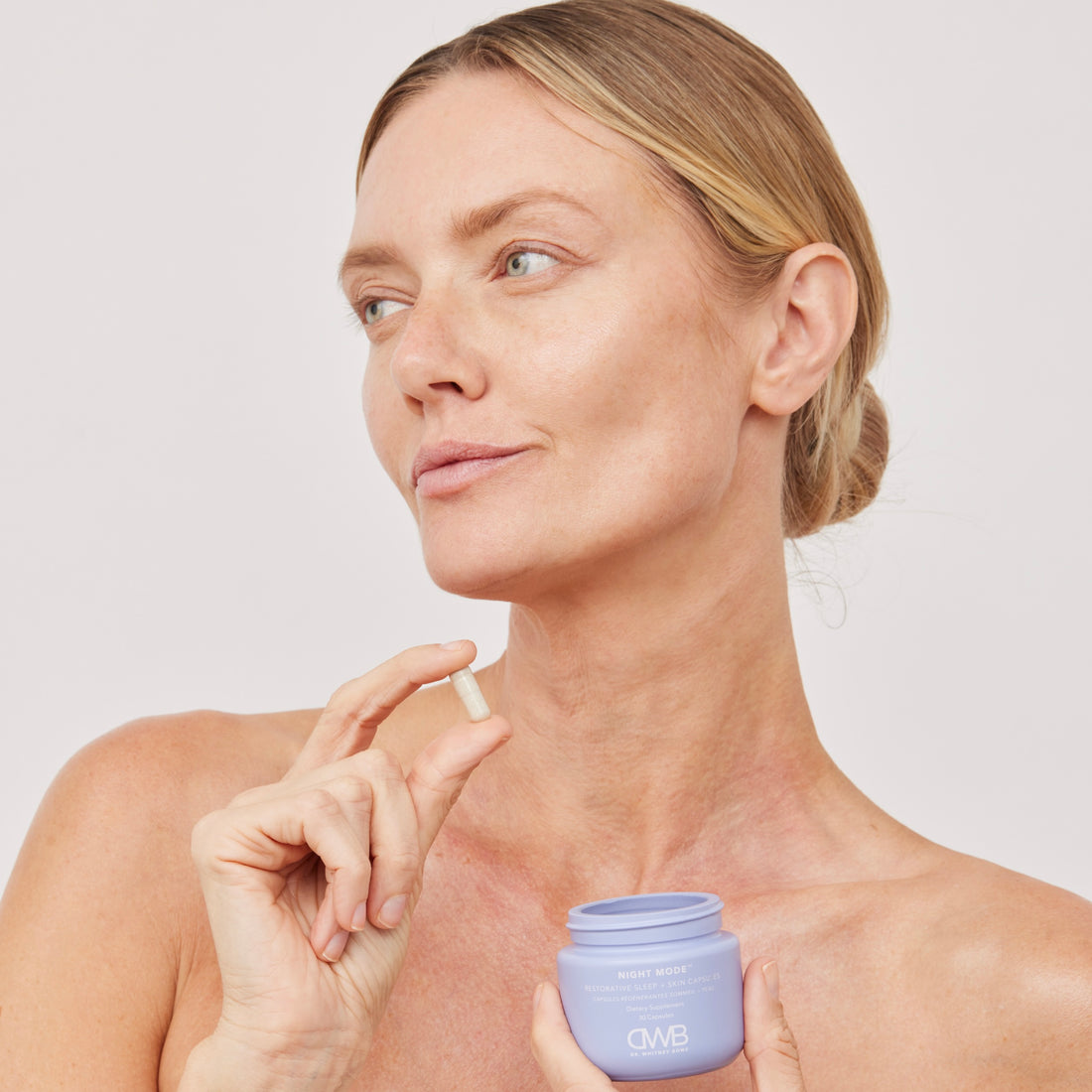Our newest product is dropping soon
Sign up for early access to our latest derm-created, 100% clinically-proven innovation. Shop before everyone else on Sunday, 9/15.

Beauty sleep is real when it comes to optimizing your skin health! I know we’ve all seen the difference in our skin when we’re not sleeping well, but there’s science behind it, too. Let’s dive in together.
Compromised sleep, in terms of quality or quantity, can affect stress hormone levels and can increase levels of inflammatory cytokines (small proteins that help control inflammation in your body)—both of which can take a real toll on skin health. I can tell as soon as I walk into a room if a patient is suffering from poor sleep just by looking at their skin. Even one night of poor sleep can begin to visibly manifest as decreased skin hydration, compromised barrier function, accelerated skin aging, and dark under-eye circles.
Chronic stress AND consistently poor sleep both trigger the HPA (hypothalamus-pituitary-adrenal) axis, a trio of glands that respond to stress. This results in an increase in the body’s production of the stress hormones cortisol and catecholamines, which in turn do the following:
1. Slows down our skin’s production of collagen and hyaluronic acid, which in turn can accelerate skin aging.
2. Slows down our skin’s production of ceramides, thus compromising our skin barrier. When our skin barrier is compromised, we can’t trap moisture as effectively in our skin and skin feels and looks dehydrated no matter how much water we drink, or how much moisturizer we slather on.
3. Slows our wound healing response in the skin, so we heal more slowly after a cut or scrape.
4. Increases the production of oils like sebum, triggering breakouts.
1. Keeps skin looking youthful and bright. Just 2 nights of poor sleep is associated with measurable changes in the skin including: reduced skin elasticity, dullness, dark circles under the eyes, and increased markers of oxidative stress in the skin. Poor sleepers are also more likely to have more fine lines and uneven pigmentation in the skin.
2. It keeps skin hydrated and keeps your skin barrier healthy. Poor sleep has been linked with dehydration of the skin and skin barrier disruption (increased transepidermal water loss).
3. Keeps skin clear and can help prevent breakouts and acne. Both stress and poor sleep have been linked with acne. When sleep is compromised, stress hormones increase and this can lead to oxidative stress and acne. It can be a vicious cycle—acne can cause emotional stress and lead to poor sleep and poor sleep can lead to more acne.
For all of these reasons, I worked with my team to formulate our Dr. Whitney Bowe Beauty’s Night Mode™ Restorative Sleep + Skin Capsules. Night Mode is what I consider “Inner Skincare.” It contains L-theanine, an amino acid commonly found in mushrooms and green tea. L-theanine stimulates alpha wave activity in the brain, which mimics what happens to brain activity when one enters a deep meditative state. L-theanine has been shown to decrease sleep latency, reduce sleep disturbance, and to maintain sleep for longer periods. It has also been shown in a randomized controlled trial to decrease both physiological and psychological responses to stress. My team and I developed Night Mode™ because I genuinely needed it, and it’s been a game-changer for me personally, and for my patients.†